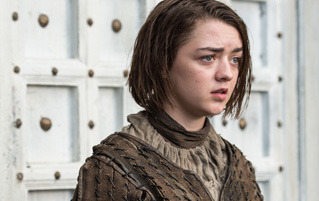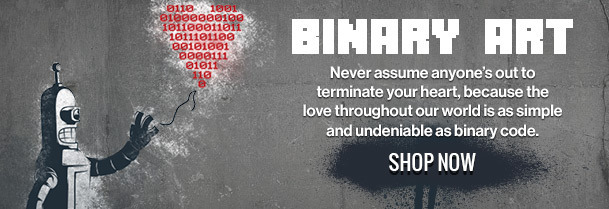4 Crappy Side Effects Of Streaming TV Nobody Saw Coming

Streaming services are undoubtedly the future of entertainment. Never before has it been so easy and convenient to watch SeaQuest DSV, or whatever show you're wasting your time on instead. But there's also a dark side to this breakthrough in boob-tubery -- because streaming's ability to trump the old television system has also irrevocably damaged television in ways we didn't see coming.
Having Access To Everything Costs More Than Ever

Brief history lesson: Early television used to be like a really elaborate radio -- you bought a TV, paid a dude to attach an antenna on your roof, and after that it was totally free to watch, because you had to put up with commercials. But unlike radio, television didn't suck, because you didn't have to use your stupid imagination to see what was going on. So we eventually demanded more options, like cable and HBO, as the medium went from dirt free 70 years ago to absurdly expensive today. Now television costs 188 percent more than it did in the 1990s. And that's not counting streaming.

Because we all hate commercials so much, the idea of paying a small monthly fee for commercial-free streaming was so appealing to consumers that every company decided to do it. The craptastic irony there is that since everyone's trying to create original content on their own direct service, they've inadvertently made it more expensive just to have the ability to watch everything that's out there (remember, this ability was totally free back when television could run commercials without pissing off everyone in the universe). Just look at what a subscription to all the major companies will run you:
HBO Now: $14.99 per month
Hulu: $7.99 per month
Netflix: $8.99 per month
Amazon Prime: $99 per year ($8.25 per month)
PlayStation Plus: $49.99 per year ($4.17 per month)
Showtime: $10 per month
Starz: $10 per month
Cinemax: $10 per month

Combine that nonsense with a provider like Comcast charging $79.99 a month for cable and Internet, and that comes to a $154.37 monthly bill to have access across the board. And this isn't even counting some of the upcoming original shows being provided by YouTube, BitTorrent (which is creating a "pro" version of their site), and fucking Overstock.com, which is inexplicably pursuing original programming in a move that could only be predicted by The Onion.

Add those two fees and we're now up to $180 per month, or over $2,000 a year. Plus all the fees that come with pay-per-view and commercial sites like iTunes, Vudu, Yahoo Screen (which will exclusively have the next season of Community), and Vimeo's On Demand. So while a sane person obviously doesn't need to watch everything that's out there -- anyone looking to legally check out Game Of Thrones, House Of Cards, Better Call Saul, and Alpha House would have to shell out over $100 just to watch four popular TV shows. Not to mention that you're now keeping track of four different bills and sites to access, making consolidating devices like Roku and Apple TV more and more necessary. In the end, we're back to needing a box on our TV that lets us watch separate streaming services, or "channels," of shows.
So yeah, it's just cable television again -- only it costs more and is impossible to manage. Especially when the different boxes themselves are also making competing content ...
There's A Conflict Of Interest Blocking Your Favorite Shows

So now that there's a million different shows on a million different outlets, it's time for them all to start fighting for your attention like adorable rabid puppies. While competition is theoretically good, the issue is that the rush for everyone to create original content has completely blurred the line between the companies creating TV shows and the platform people use to watch them. Remember when Microsoft came close to competing with Netflix last year?

TV: for when you need a break from video games.
What were the odds that your Xbox would have kept offering the Netflix app if it was directly competing with them? Or PlayStation, now that they they've also begun to make original content? This isn't theoretical either, because Comcast is pretty much guaranteed to deny HBO Go on gaming consoles and streaming boxes -- both the PS4 and Fire TV are entirely devoid of the wacky goings-on of the Lannister family. It sounds dickish, but since we're talking about a company looking to make Comcast obsolete ... why wouldn't they be dicks about it?

This is the same issue behind Netflix's plans to release the Crouching Tiger, Hidden Dragon sequel as their first feature film. Instead of going exclusively to theaters, the company plans to simultaneously release it on IMAX and as a Netflix exclusive -- something that's causing AMC, Regal, and Cinemark theaters to boycott the film, because they want to protect their business model. Oh, and did we mention that this also applies to the future of entertainment?


Xbox won't join in because video games and virtual reality aren't on speaking terms.
As both Samsung and Oculus Rift vie to be the masters of VR hardware, we're either going to choose between two completely different sets of content, or buy two completely different pieces of hardware to be able to watch everything. So instead of working together on a single format like they should, these companies are all using our access as bargaining chips. It's like a bunch of landscapers trying to borrow each other's tools to start their own company -- in the end, we're just left with a bunch of half-mowed lawns. It's like video game consoles, only with movies and television, so we're going to have to buy three different machines to watch all of our movies.
And speaking of quantity over quality ...
There's An Insane (And Useless) Arms Race Of Content

It's hard to complain about there being too many entertainment options out there, right? Even if it's costing us more than many Americans are contributing to their retirement funds? Here's the thing: Since 2008, the average American home jumped from having 129 channels to 189, raising the price of cable with it. Now, can you guess how many more channels the average viewer would watch as a result?
Two hundred channels and still nothin' on.
Zero. Not only do we only watch a fraction of the channels we receive, but that amount (17 channels) hasn't changed in the last eight years. In other words, charging more money to provide more shows isn't going to create more viewership, but rather spread the ratings thinner and thinner. Clearly, the stupid move here would be to flood the already-crowded entertainment landscape with more program -- oh, OK. Never mind, then:



It's not enough for these companies to simply contribute original content; they all seem to want to completely dominate the market until their streaming service is throned atop the skulls of fallen television executives and theater owners. The obvious issue is that sites like Amazon, Overstock, and even Netflix have no business on the creative side -- Netflix is a video rental service that created their hit show House Of Cards through a fucking algorithm that predicted the optimal combination of factors that viewers look for. It's a clever trick, but not exactly useful when you're trying to put out 20 freaking shows a year. Suddenly we get pedophilic seizure dreams like the new Richie Rich show, starring a boy and his robotic pre-teen sex-maid.

Nobody was looking to turn TV into Hollywood. But there's a much bigger impact of streaming that no one seems to be talking about ...
We're Witnessing The Death Of The Mega-Hit

Anyone born before 1990 probably remembers the long summer of 1995, where America was wondering who shot Mr. Burns in The Simpsons -- a finale that caught the eyes of 12.3 million viewers. Anyone born before 1980 probably remembers the season finale of Dallas (which The Simpsons was spoofing), when 83 million people were left wondering who shot J.R. Ewing.

Back when people didn't have the power to watch whatever they wanted whenever they wanted, you were forced to actually sit down and watch your favorite show when it actually aired. The old television system created a ratings bottleneck, where an entire country could share a single finale, cliffhanger, or fictional tragedy together. And while streaming has undoubtedly improved on the system, one of the casualties was the fun of uniting around one piece of small-screen Americana. For example, despite being a seemingly universal hit that permeated all levels of popular culture, the series finale of Breaking Bad was seen by a measly 10.3 million people. For comparison, that's not even a third of the number that watched the finale of Home Improvement, which was a show about Tim Allen making gorilla sounds at his confused family.

By being at our beck and call 24/7, streaming is so awesome and vast that it dilutes audience appreciation the way living next to an all-night Taco Bell lessens the spiritual and technological impact of Doritos Locos Tacos. There are no more mega-hits. There's no show that virtually everyone in America sits down to watch, like M*A*S*H or Cheers. In a way, it's kind of made our current favorite shows less special than they might have been 20 years ago, because we can watch every single episode whenever we want, as opposed to once per week, only catching old episodes when they rerun in syndication.
It's hard to say whether this is a bad thing, but it's definitely not a thing anymore. I understand that this is a marvelously petty complaint, but this entire article has been about how having TV shows beamed directly into our homes from space has made life too good, so meet me halfway here.
Be Dave's friend on Twitter.
See also 6 Stupid Reasons Actual People Are Scared Of Net Neutrality and 4 Sites Where You See The World Going To Hell In Real Time.


